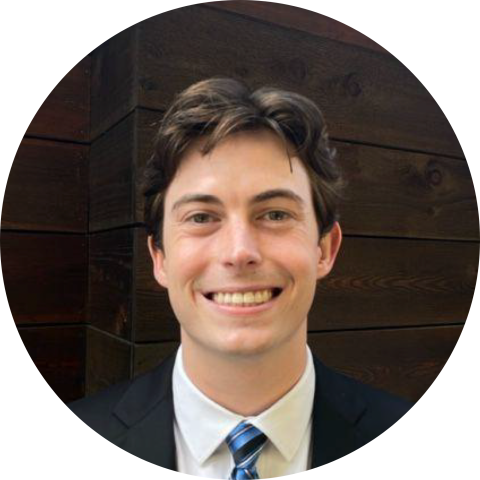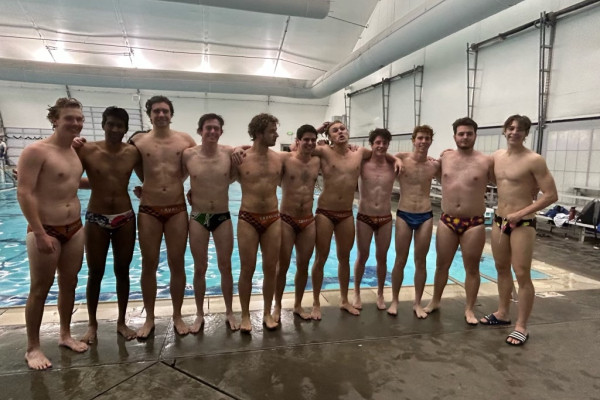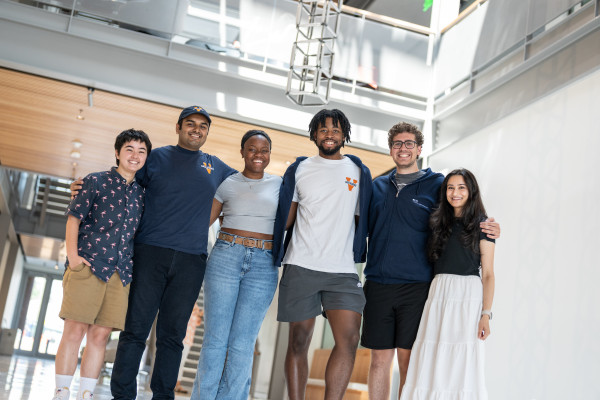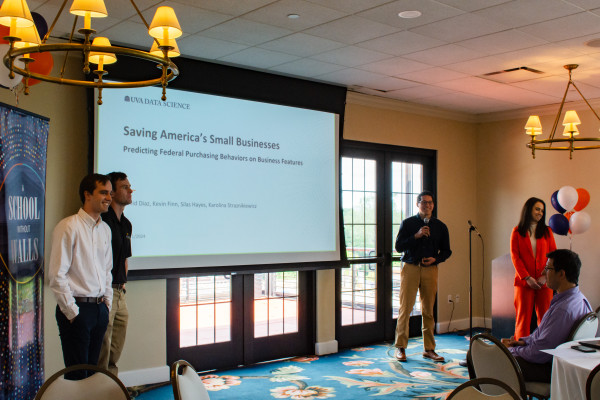
From UVA to JPMorganChase: Alumni Michael Vaden on collaboration, curiosity and a career in data science

Michael Vaden
Employment
JPMorganChase Institute, Data Scientist (Washington, D.C.)
Education
M.S. in Data Science 2024, University of Virginia
B.S. in Computer Science 2023, University of Virginia
Alumni Michael Vaden’s data science path has been defined by curiosity, collaboration, and a drive to use data for good. After earning both his B.S. in Computer Science and M.S. in Data Science (MSDS) from the University of Virginia, Michael joined the JPMorganChase Institute as a data scientist, where he works on research that informs economic decision-making and policy.
In this Q&A, Vaden reflects on the lessons that stuck with him from the MSDS program, the power of persistence during his Capstone project, and how his graduate experience continues to shape his work and perspective. From debugging convolutional neural networks to building choropleth maps that uncover geographic patterns, Michael brings both technical depth and thoughtful intention to his career in data science.
Q: Walk us through what you did at work today.
After our daily standup meeting, I started some exploratory data analysis for a potential research question my team is considering. I first created time series visualizations to identify any data quality issues, which helped surface a few anomalies worth exploring. I then built a preliminary sample dataset in SQL that captured some of the core characteristics we are interested in.
To wrap up the day, I used Python to generate choropleth maps across several major U.S. cities. This helped us begin identifying geographic patterns in the data. I pulled together some early takeaways to guide our project planning discussions tomorrow.
Q: What did you learn in the MSDS program that you have found most useful in your career so far? And what do you wish you had learned?
I learned way too much to fit into one answer, but one thing that’s stuck with me is how to work well on a team of data scientists. Figuring out how to split work, communicate clearly, and build off each other’s strengths has been one of the most useful skills in my job.
As for what I wish we had covered more, I wish we had gone a bit deeper into the mechanisms behind Generative AI and LLMs. The pace of AI news and progress is incredibly overwhelming, and it feels like everyone expects this new technology will either cure cancer or destroy society. Having a stronger technical foundation in the subject would better help me decide how to feel about it.
Q: How did the MSDS Capstone project prepare you for your current work?
The Capstone project taught me how to handle uncertainty. We were trying to predict winter precipitation in California using convolutional neural networks, and our initial results were disappointing. We did not know whether we made an error or if our approach was simply a bad fit for the problem. We had to remain patient, review diligently, and come to terms with the possibility that we might need to start over.
Ultimately, we caught a bug in our code that was impacting our initial results and were able to implement and iterate on our approach with great success. This lesson was invaluable for preparing me for my current role, teaching me that a good data scientist needs a healthy mix of patience, hope, skepticism, and responsibility.
Q: Were there specific classes, projects, or professors that you found particularly influential in preparing you for your career?
Each class was influential in its own way, but a few courses really stood out: The Practice and Application of Data Science with Jonathan Kropko helped me develop strong data querying, manipulation, and analysis fundamentals (SQL and the Pandas library in particular).
Big Data Systems with Yue Cheng introduced me to the concept of distributed computing, helping me write more efficient code at scale. Lastly, Bayesian Machine Learning with Don Brown pushed me to work through complex topics that initially felt abstract and intimidating. It taught me that sometimes the best way to learn is to dive in and figure it out as you go.
Q: What networking opportunities or alumni resources played a role in securing your current position or aiding your professional development?
The MSDS program conveyed the importance of networking immediately. Additionally, the program helped me better understand how to present myself and overcome the fear of rejection.
The Career Services team was a good resource; they acted as a very useful feedback loop, often helping me iterate on my resume while having realistic discussions about roles I may be qualified for. I’m grateful for the support I received from alumni as well and hope to keep paying that forward as part of the MSDS alumni network.
Q: How do you perceive the impact of your MSDS degree on your career advancement and opportunities?
A lot of data science roles today expect candidates to have not only technical skills but also a graduate degree and hands-on experience. I think the MSDS degree gave me much-needed credibility by offering both educational depth and real collaboration experience, inside and outside the classroom.
My degree opened doors that weren’t available to me coming straight out of undergrad and gave me exposure to a broad range of concepts that have expanded my workplace knowledge and the story I can tell through my resume.
Q: Was there a student experience or classmate/cohort interaction during your time at the School of Data Science that stands out as particularly memorable or transformative for you?
There wasn’t just one defining moment, but what strikes me looking back on my MSDS experience is the strength of the bonds I made in such a short amount of time; although the days were sometimes long, the time flew by in a flash.
It is a rare opportunity to get so many people in the same room who have a similar passion for Data Science, yet bring their interdisciplinary backgrounds and perspectives. My experience was greatly enhanced by the friendships that I was fortunate enough to form with many diverse people across our cohort.
Q: As you look ahead, where do you envision yourself professionally in the next 5-10 years? Are there specific career goals, projects, or milestones you aspire to achieve in the coming years?
Right now, I’m trying to be a bit more intentional about not rushing my career. My work at the UVA Biocomplexity Institute and now at the JPMorganChase Institute has shown me how data science can be used for the public good, and I don’t want to lose sight of that.
I also have interests in areas like sports analytics and music, and I’d love to explore those if the right opportunity came along. More than anything, my goal over the next five to ten years is to keep doing work that feels meaningful, whatever shape that may take.




